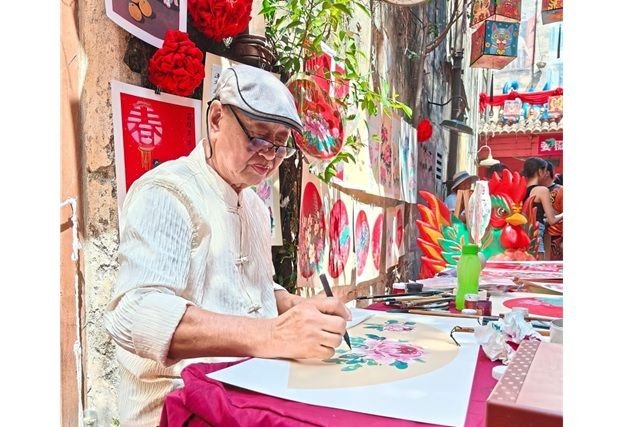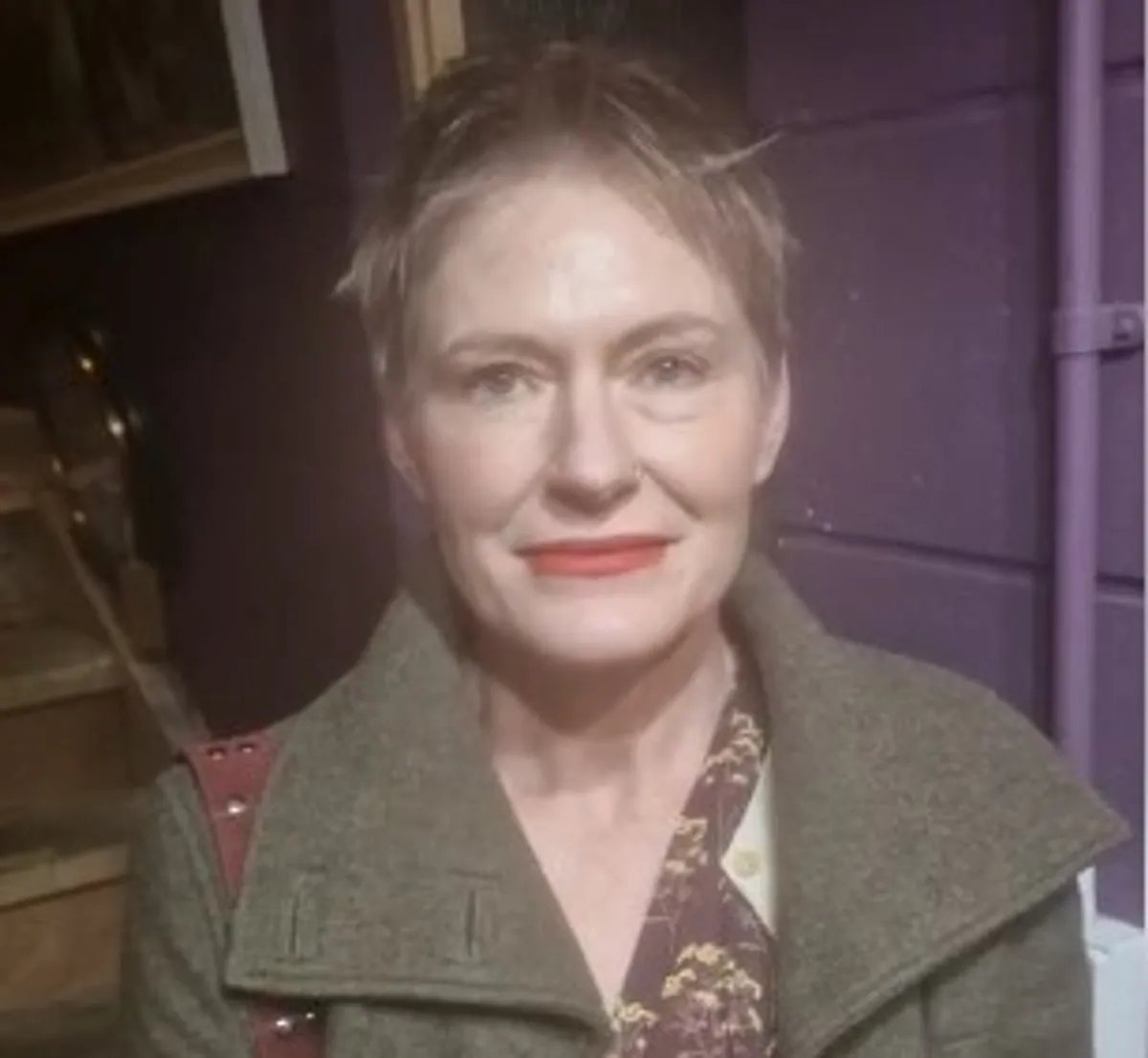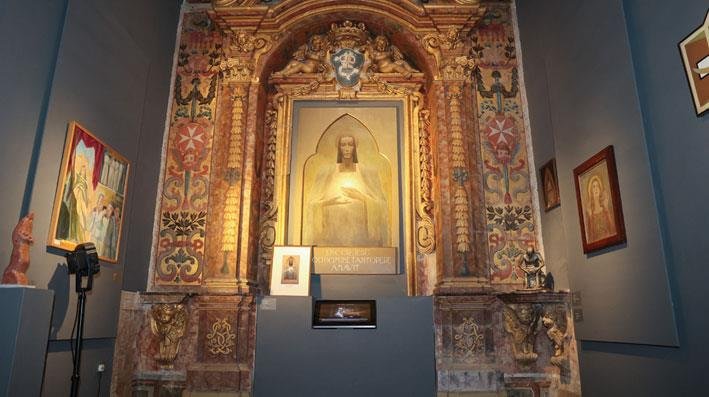Bengaluru: If you trace the story of ‘hitherto unseen’ portrait of Raja Ravi Varma, possibly India’s most known artist, it will lead you to one of Bengaluru’s posh neighbourhoods— 7 Richmond Road to be exact, and the recluse rani who spent her last days happy and content there.
The portrait features a three-year-old toddler staring defiantly back at the artist, her grandfather, as if aware of what life has in store for her already.
Baby Pooradam Thirunal Sethu Lakshmi Bayi was painted by Varma in 1898, a mere three years before she was chosen as the senior rani of Kingdom of Travancore.
Padmanaba Sevini Vanchi Dharma Vardhini Raja Rajeshwari Rani Sethu Lakshmi Bayi Sahiba would go on to rule for eight years, between 1924 and 1931, leaving a legacy of social reforms way ahead of times. Among her many accomplishments, her role in the abolishment of devadasi system in Kerala and the opening of the roads of Travancore as well as the doors of famous Vaikom temple to people from lower castes are worth mentioning.
“The one who was celebrated as living goddess by her subjects died as Sethu Lakshmi Bayi in Bengaluru, cremated at the electric crematorium at Wilson Gardens, never really knowing how popular she was. The palatial bungalow in Richmond Road that she chose to retire into, was nothing compared to the luxuries that she was used to,” said Manu S Pillai, whose debut book, The Ivory Throne: Chronicles of the House of Travancore, recounts the life of the iconic woman of 20th century India.
Pillai unveiled the portrait for an invite-only audience on April 27, taking them on a guided tour through her life.
The portrait will be open to the public till April 30, before again being locked up safely, said Gitanjali Maini, the woman behind Raja Ravi Varma Heritage Foundation (RRVHF) that has acquired the painting from the Travancore royal family.
Incidentally, senior rani’s granddaughter, Rukmini Varma is the chairperson of the foundation that holds the intellectual property rights of the artist’s life and work. “Until now, the only ones who had access to the painting were the family members of the senior rani. Finally, people can marvel at yet another masterpiece of Raja Ravi Varma, an original at that, and not one of his millions of oleographs. The foundation is also open to loaning the portrait to galleries and museums, should they mount a show on the artist,” said Maini.
It is said the senior rani was denied any dignity ever since her nephew— the last king of Travancore, Chithira Thirunal Balarama Varma came of age and took over the throne in 1931.
With the freedom of India, when the rest of the royal world was struggling to relinquish the luxuries enjoyed by them, senior rani was happy to escape the trappings of the opulent Satalwad palace in Travancore, a golden cage as far as she was concerned, and lead a simple life in Bengaluru, said Pillai.
Much later, Pillai told PTI that he chose to write about her for his debut book because he found her life intriguing.
“I was one of those Malayalees who grew up away from Kerala and I discovered her when I was maybe 18 years old. When I tried to find out more about her, I realised there was this awkwardness around her story – as if people do not want to talk about her, uncomfortable with the injustice meted out to her. This only fuelled my curiosity. The more I discovered her, the more I wanted to write about her remarkable life,” said Pillai.
It took him six years and numerous interviews with those close to her before he could finally write the book, said Pillai, who won Sahitya Akademi Yuva Puraskar award for the book in 2017.
Pillai said he always knew that the palace intrigue— and her feud with her cousin, the junior rani, Sethu Parvathi Bayi, and the mother of the last king of Travancore would make her life a compelling read.
The exhibition ‘Daughter of Providence’ at the gallery of RRVHF at Lavalle Road, puts together senior Rani’s life using photographs and other portraits of her, including the official portrait of her by her granddaughter Rukmini Varma, another original on display.
Pillai’s accompanying notes weave the story in and out of the intrigue that was senior rani’s life.
For instance, the exhibition features one of Varma’s lesser known works, Lord Rama Conquers Varuna in what may look like an abrupt intrusion. But we learn that the man who served as a model for Rama was one of those finalised by the royal family as consort for senior rani. Incidentally, according to Pillai, senior rani, overwhelmed by his handsomeness, rejected him and chose his brother, a ‘normal’ looking man.
Often the side stories add to the drama. Like how the Maharaja died due to a rotten tooth— which he, by the way, did not want to treat because it involved a person of lower caste peeking into his mouth. His untimely death led to senior rani becoming a regent for the still young, next in succession prince, the son of her cousin, further estranging their already strained relationship.
“It is not really surprising that they are interested in making her life into a film now. I am in talks with the production house, let’s see,” Pillai told PTI.
Word on the street is that Shobu Yarlagadda, producer of the Baahubali franchise has picked up the rights for the book.
(Published 29 April 2024, 07:48 IST)






